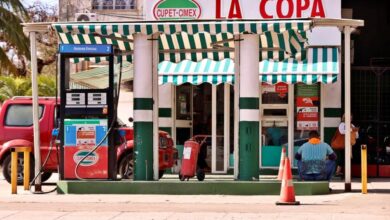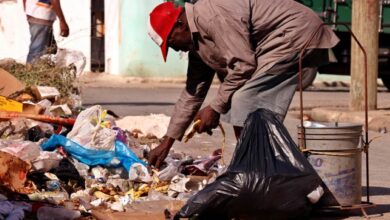Crisis in Haiti: a Political, Human Rights and Security Problem
The absence of a democratically elected president since 2021, the urban violence and human rights violations, and the cholera outbreak are some of the problematic situations that the nation is currently experiencing. What is the role of Latin America in the Haitian crisis?.

Photo: Smileys
LatinAmerican Post | Alejandra Caballero
Listen to this article
Leer en español: Crisis en Haití: un problema político, humanitario y de seguridad
Haiti has actively participated in international organizations by being a founding member of the Editorial Board of the Declaration of Human Rights and also of the United Nations. Inspired by the liberal values of the French Revolution (1789), it was the first country to abolish slavery in the then French colony of Saint-Domingue, to proclaim the First Empire of Haiti in 1804. The abolition of slavery and its independence, served as an example for other nations of the American continent to start their own independence movements.
The Labyrinth of the Current Crisis in Haiti
However, today the panorama is completely different for the Caribbean nation. Haiti is the country with the highest rates of extreme poverty in all the Americas. According to World Bank figures (2021), 60% of the population lives below poverty and 70% of its population is unemployed. In addition to this, food insecurity is added, which arises because of the continuous shortage of food that occurs due to environmental catastrophes in recent years. According to a UNOPS report (2022), “over the last 10 years, 1.5 million people lost their homes due to extreme weather events and natural disasters." But this is not something new, it is a constant through the years and decades.
Also read: Assassination of Social Leaders in Colombia, an Invisible Problem?
In the political sphere, after the assassination of Haitian President Jovenel Moïse in July 2021, the country has entered into a series of structural problems and violence, which have been a reflection of the absence of solid institutions that take territorial and political control of the country. In February 2023, three Haitian-Americans and one Colombian who allegedly participated in the president's assassination were extradited to the United States, along with others involved who were already in detention.
The authorities indicate that the assassination of the president in the State of Florida, in the United States, had been planned with the possible objective of positioning a new president, which would financially benefit some foreign businessmen. According to the newspaper France24, "there are already 40 detainees, the majority without procedural guarantees, including 18 former Colombian soldiers accused of being part of the commando that broke into the president's residence. However, little progress has been made in clarifying the determiners of the assassination".
Adding to the environmental and political problems, to date there are no new elections to make a democratic transition to a new leadership of the country. Added to the situation is the fact that the only remaining parliamentarians on duty have finished their term by the first quarter of 2023. Due to institutional weakness, groups outside the law have taken control of the streets. According to the National Network for the Defense of Human Rights (RNDDH), an alliance of 6 gangs maintains 60% of territorial control in the country.
On the other hand, Haiti faces a deep humanitarian crisis as a result of the latest cholera outbreak. In the corresponding period from October 2, 2022, to February 12, 2023, according to figures from the Pan American Health Organization (PAHO), "a total of 30,715 suspected cases were reported in 10 departments of the country, including 2,283 confirmed cases, 27,014 suspected cases admitted and 594 registered deaths.”
The Role of Latin America in the Crisis in Haiti
To date, the United Nations Mission for the Stability of Haiti (MINUSTAH) and the United Nations Mission to Support Justice in Haiti (MINUJUSTH) have been withdrawn from the territory for 5 years, since the country allegedly had with all the tools to have political, social and humanitarian stability. However, the panorama has made Haiti once again be seen by international actors as a country with great needs. For this reason, it is a country that the different countries of Latin America could support in favor of the well-being of the population.
Contrary to this, in February 2022, the Dominican Republic approved and began the project for the construction of a physical wall that would divide the island in the existing 390 kilometers of border. "The Dominican Republic cannot take charge of the political and economic crisis of that country (Haiti) or solve the rest of its problems,” said the Dominican President, Abinader, in the framework of the inauguration ceremony of the construction. The act demonstrated the little willingness to help to solve the problem that is taking place on the other side of the border.
In an effort to include the issue of Haiti on the regional agenda and begin to carry out coordinated actions, international organizations have put the issue on the table. The OAS has set up a working group with special emphasis on the case of Haiti, which, last April, concluded that it is necessary to resume humanitarian aid and intervention projects in the country to offer tools that ensure the political stability. The report mentions that "OAS member states and permanent observer states should be encouraged to integrate, innovate, complement and coordinate their efforts with other actors." Given this, it would be expected that the rest of the continent would begin to actively support the country, which is in the most precarious situation in the entire region.
On the other hand, with the aim of advancing a more active response by Latin American countries to the Haitian problem, the United States ambassador to the UN, Linda Thomas-Greenfield, officially visited Brazil earlier this month. During the meeting, she emphasized her concern about the situation in the French-speaking country and the need to count on the support of Lula da Silva on the issue of Haiti.
In response to the call from Washington and various international organizations, President Lula da Silva, in the framework of the G7 meeting on May 20, declared that: "The scourge facing the Haitian people is the result of decades of indifference to the real needs of the country. For years Brazil has been saying that the issue of Haiti is not only a security problem, but above all a development problem".
Also, in view of the little progress in defining a clear route by the Latin American states in Haiti, Keith Mines, director of the Latin American program at the United States Institute for Peace, explains that the cause lies in the will. "It's quite simple. Nobody wants to do it. There is no country that at this moment feels the responsibility or the obligation to do it," he said.




